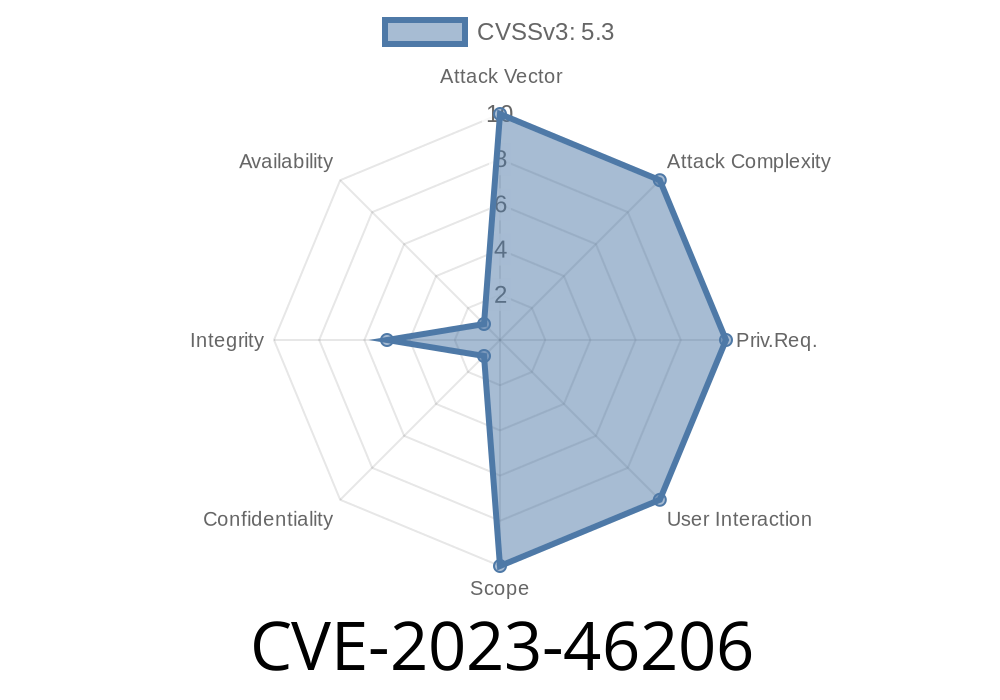A recent security advisory brought attention to a critical vulnerability — CVE-2023-46206 — found in the popular WordPress plugin MW WP Form, versions up to 4.4.5. This plugin helps millions to create contact forms on their WordPress sites, but a missing authorization flaw means attackers can perform unauthorized actions if the plugin isn’t locked down properly.
If you’re running a site with MW WP Form, you need to understand this issue, see why it’s risky, and learn how to fix it fast.
What’s the Problem: Missing Authorization
The vulnerability arises due to improper access control. Specifically, the plugin fails to properly verify whether a user is authenticated before allowing them to perform certain sensitive actions. This is known as a Missing Authorization or Broken Access Control problem.
> Impacted versions: From unknown (initial release) through version 4.4.5
Potentially open up a chain to full WordPress compromise if chained with other weaknesses.
Note: This is especially dangerous for sites where forms manage user data, support requests, leads, or sensitive communication.
Affected Endpoints and Mechanics
The MW WP Form plugin exposes "public" endpoints for AJAX and API actions. Without a proper check for authentication or capability, anyone (even a visitor without a user account) can make requests to perform restricted actions.
A typical vulnerable instance involves AJAX handlers, like
// Snippet from MW WP Form (simplified for illustration)
add_action( 'wp_ajax_mwform_save_form', 'mwform_save_form_func' );
add_action( 'wp_ajax_nopriv_mwform_save_form', 'mwform_save_form_func' ); // <-- nopriv means accessible to non-logged-in users
function mwform_save_form_func() {
// No authorization or nonce checks!
$form_id = $_POST['form_id'];
$data = $_POST['data'];
update_option( "mwform_data_{$form_id}", $data );
wp_send_json_success();
}
In this oversimplified snippet, you see that both "logged-in" and "not-logged-in" users can call the AJAX save function. No additional checks mean attackers could POST data here directly.
Proof-of-Concept Exploit
Here’s a simple exploitation flow using tools like curl or BurpSuite.
2. Send a crafted POST request to the AJAX endpoint
curl -k -X POST "https://victim.site/wp-admin/admin-ajax.php?action=mwform_save_form"; \
-d "form_id=123&data=malicious_form_config"
Phishing: Forms could be edited to redirect or harvest new sensitive information.
- Privilege Escalation: In some edge cases, configuration changes could trigger new vulnerabilities, especially if forms interact with other plugins.
The plugin maintainers have addressed this issue after 4.4.5. You should upgrade as soon as possible
If you can't update immediately, restrict public form endpoints
function mwform_save_form_func_secure() {
if ( ! current_user_can( 'manage_options' ) ) {
wp_send_json_error( 'Unauthorized', 403 );
exit;
}
// ...existing code...
}
Check for unauthorized modifications or strange submissions after patching.
- Audit form endpoints to ensure no "nopriv" hooks allow non-authenticated requests to sensitive functions.
References and Resources
- NVD Entry: CVE-2023-46206
- Original Patch/Changelog (look for commits post-4.4.5)
- MW WP Form on WordPress.org
TL;DR
CVE-2023-46206 in MW WP Form ≤ 4.4.5 lets attackers abuse missing access controls to change plugin behavior or steal data. Update the plugin ASAP or patch manually, and always restrict public endpoints that modify configuration or access user data.
Protect your site:
Audit new plugins for capability checks.
If you want technical guidance, join WPScan CVE discussion or contact security professionals.
Timeline
Published on: 01/02/2025 12:15:11 UTC
